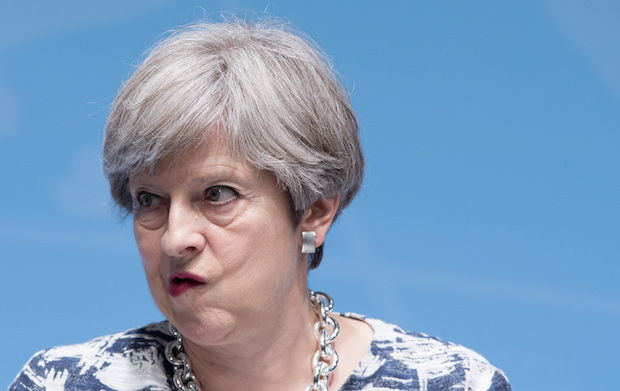Ahead of the summer recess, there was concern among Tory high command that the long holiday could result in seven weeks of leadership plotting. But worried Mayites can rest easy as instead what’s transpired instead is an endless free-for-all over the government’s Brexit position. Every day hacks now take a comment from a minister on one aspect of Brexit and then try and work out whether or not the whole Cabinet agrees with them.
Today it was the Prime Minister’s spokesman who stepped up to the plate. After some confusion last week over the government position on immigration (after Brandon Lewis said freedom of movement would end by 2019 but his Home Office boss Amber Rudd said the flow of EU workers would continue for an ‘implementation period’), No 10 attempted to set the record straight. In a bid to offer clarity, this morning the Prime Minister’s spokesman confirmed that free movement of EU citizens to Britain will end in March 2019:
‘It would be wrong to suggest it… will continue as it is now.’
This clarification – if you can call it that – has been jumped on as a confirmation that freedom of movement will end in March 2019. However, it’s still not clear what – if anything – that actually means. Saying freedom of movement will end in 2019 (without a new plan to go with the announcement) is a vague statement. It’s true that ‘freedom of movement’ as mandated by the EU will technically end once Britain leaves the EU, even if a similar system replaces it in the implementation period.
As I wrote last week following Lewis’s near identical comments on the issue, there is nothing in this statement that contradicts anything said by the Cabinet.Rudd could still get her flow of EU workers and Hammond could still get his transition period which means things stay looking pretty much as they do now. Likewise, it could be that the government will have a new immigration system ready to go on day one of Brexit Britain. But given that the whole Cabinets agree on the need for a transitional agreement, that’s unlikely.
More likely is that the government is being pulled in different directions on its Brexit position – seeking to offer certainty to business while also attempting to reassure voters they will get the Brexit they voted for. Saying freedom of movement will end when Britain leaves is a helpful statement – it sounds tough but promises little. The problems in the Cabinet will come when the Prime Minister has to spell out what it actually means in practice.







Comments